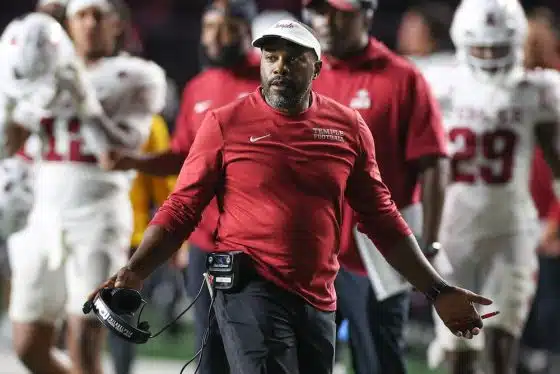News
Less Than 4% Of Pennsylvania Bettors Use Problem Gambling Controls

City & State Pennsylvania recently spoke with Kevin O’Toole and Doug Harbach, executive director and communications director with the Pennsylvania Gaming Control Board (PGCB), respectively, on the latest trends in gaming and how the state may handle issues related to sports betting, skill games, and problem gambling.
Legal gambling age in the Keystone State is 21 except for lottery, horse betting, bingo, and online casinos
O’Toole was asked what the PGCB is doing to make younger demographics aware of gambling-related risks. He said, “The statute dictates the legal age to gamble, and it’s always been 21 years except for fantasy contests with a gambling expansion bill. [This measure] made fantasy games available for those who are 18.”
The legal gambling age in Pennsylvania is also 21 except for lottery, horse betting, bingo, and online casinos. Because of iGaming and the legalization of sports betting, problem gambling is impacting younger generations now more than ever before.
Problem gamblers are urged to call the Pennsylvania Gambling Addiction 24-hour hotline at 1-800-GAMBLER. Residents can also search online for a problem gambling treatment provider using the clickable map on this page.
“We have significant initiatives to provide awareness, education, and treatment to compulsive or problem gamblers, or people who believe that they may be approaching those categories. Those initiatives apply to people who are 21 or 22. And they apply to people who are 61 and 62,” O’Toole added.
“We’ve also had a self-exclusion list for a long time and a lot of people know about that and how to sign up to be excluded, whether that be for a one-year period, a five-year period or for a lifetime.
“For the age group 21 and up, we are hopeful that they will look at the various links that are on their screens if they’re playing online. … We require the problem gambling logo, and we require a link to the self-imposed list.”
Less than 4% of registered players in Pennsylvania used the state’s self-exclusion programs in June
Although Pennsylvania offers self-exclusion programs for gamblers, not that many players are utilizing it. In fact, less than 4% of registered players used it back in June.
“Any gambler can limit the amount of deposits that they can make in the course of a timeframe. They have self-imposed holding periods or cooling-off periods where the only requirement is that it has to be at least 72 hours,” O’Toole noted.
“The last month we collected data for was June. [That was] when 3.64% of all registered players utilized one or more of those self-imposed limits. The last point is that all of the interactive operators, whether they’re sports or iGaming, are required to have call centers.
“The gambling public, who have registered accounts, can communicate with the call center associated with any of the operators. [They can] voice their concern about any problem that they’re having with respect to the play.
“They can call and say, ‘Hey, how can I stop playing?’ We also have an Office of Compulsive Problem Gambling, and they field calls frequently to help persons of all age groups.”
Self-exclusion programs help individuals affected by problem gambling distance themselves from the temptation of gambling. Self-exclusion allows gamblers to voluntarily ban themselves from betting-related activities. This includes casinos, internet-based gambling, video gaming terminals, and fantasy sports wagering.












































